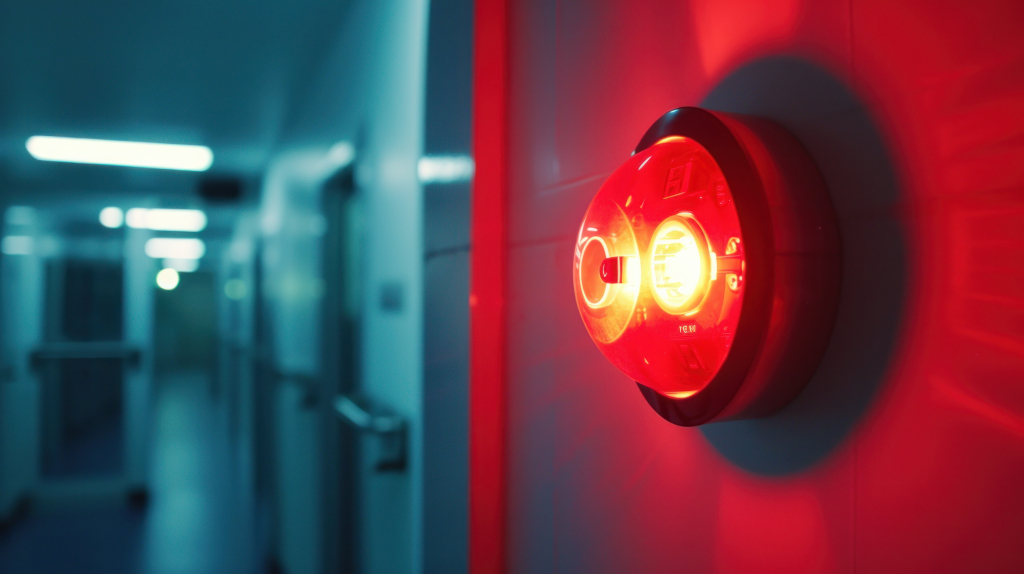Automatic Fire Alarms
The way we respond to Automatic Fire Alarms (AFAs) has changed.
From the 6th of January South Wales Fire and Rescue Service (SWFRS) has changed its approach to how it responds to automatic fire alarms. We will stop attending automatic fire alarms in most non-residential buildings, such as office blocks or industrial estates, during daytime and night-time hours – unless a call is also received from a person reporting a fire.

What buildings does this policy NOT apply to?
Exemptions to this policy include:
In 2023/24 AFAs made up 31.5% per cent of all incidents attended – 5,982 calls. Less than one per cent of calls from non-residential AFAs are ultimately recorded as fires – the 99% per cent majority are false alarms.
We are trying to reduce the amount of time and resources spent going to Unwanted Fire Signals (UwFS), our new policy gives us more time and resources to focus on other priorities, such as increasing fire prevention in your community and freeing up our firefighters to go to real emergencies.
This policy won’t apply to all buildings. Residential buildings, educational buildings and heritage buildings are exempt. You need to check if you are or aren’t exempt.
What do I do if I hear an AFA?
If I call in because an AFA is going off, I’m not sure if it’s a fire, will SWFRS still attend?
This will depend on what information you can give. If you think it is a residential property, one of the exemptions with signs of fire such as smoke issuing, then SWFRS will still attend.
However, if you know it to be a commercial property with no sign of fire, SWFRS will not attend.
Is SWFRS asking people to put themselves at risk to check if there is a fire when an alarm is sounding?
No, nobody should put themselves at risk to check if there is a fire. A building’s risk assessments and emergency plans should ensure that is the case.
If a caller has good reason to believe that an AFA is sounding because there is an actual fire, then SWFRS will send a response. Examples include seeing fire, smoke or smelling burning. Multiple detector heads or manual call points actuating alone, do not necessarily mean a fire is occurring and, if safe to do so, should be investigated and considered alongside other indicators. Confirmation of actuation of a sprinkler flow switch will receive an SWFRS response.
AFA calls to commercial premises are already subject to challenge and call filtering, and work to develop this strategy noted that SWFRS Control Operators are good at identifying calls and recognising when calls are a result of AFAs rather than confirmed fire calls. SWFRS will continue to attend all confirmed fires.
If I hear an AFA, how do I investigate? What am I expected to do to investigate? Will investigating the cause of the AFA activation put us in danger?
This procedure should all be decided beforehand, considered in line with the premises fire risk assessment and drawn up in an emergency plan specific to the premises. Nobody should be put in danger and you should not put yourself in danger. You can read our guidance on safe investigation of fire alarms.
Insurance and legal duty
Do I need to inform my current insurers of your change in response to AFA activations?
This is a matter between you and your insurer, it is not a matter for SWFRS to comment on. However, SWFRS can confirm that a response will continue to be sent to all confirmed fires.
Does SWFRS have a legal duty to attend?
The statutory duties of Fire and Rescue Services in England and Wales are set out in the Fire and Rescue Services Act 2004. There are no requirements within this act that compel an FRS to attend a call to an AFA if no fire is suspected nor confirmed.
Further guidance
Further guidance is available on our Business Fire Safety page.
If you require further information or advice in relation to the change in our response to automatic fire alarm actuations from January 2025, then please email afaenquiries@southwales-fire.gov.uk
For specific guidance on eliminating unwanted fire alarm actuations, please refer to the National Fire Chiefs Council